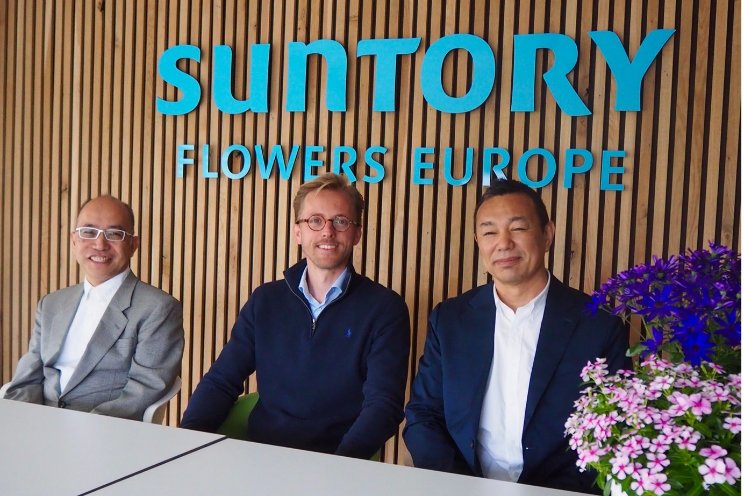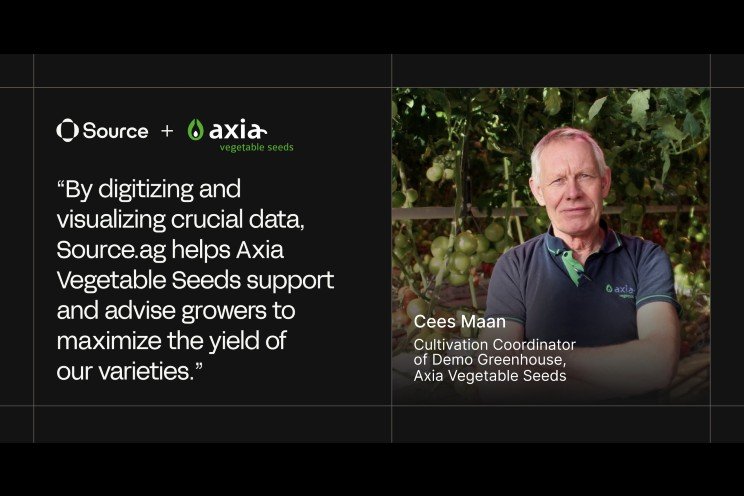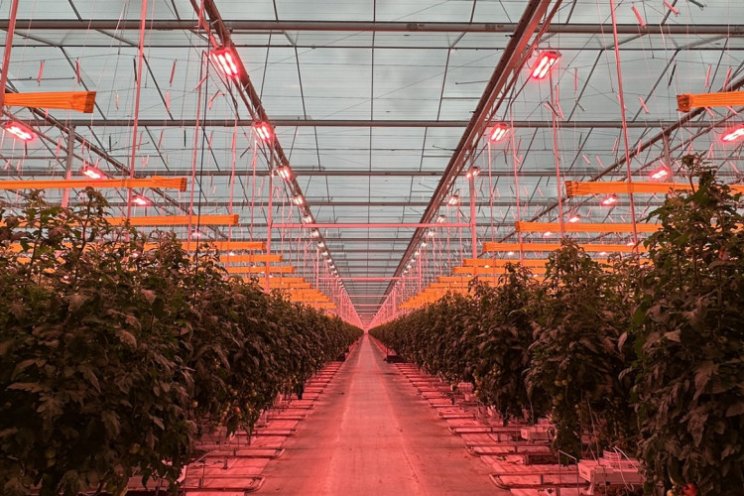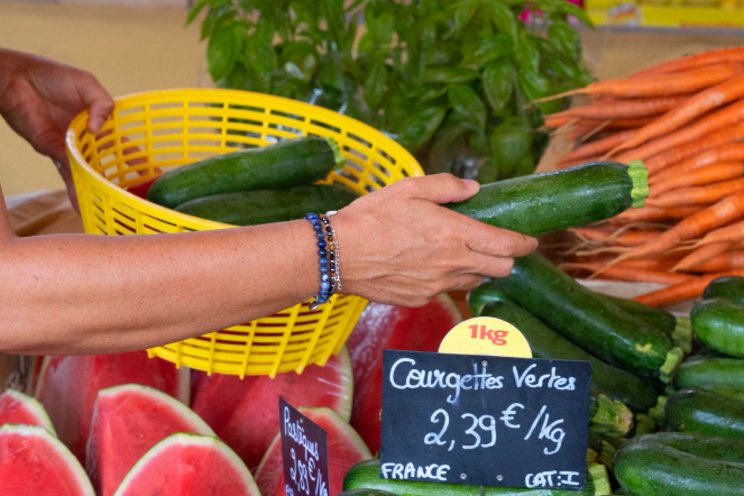Tech leads greenhouse farm's growth
Added on 16 May 2021
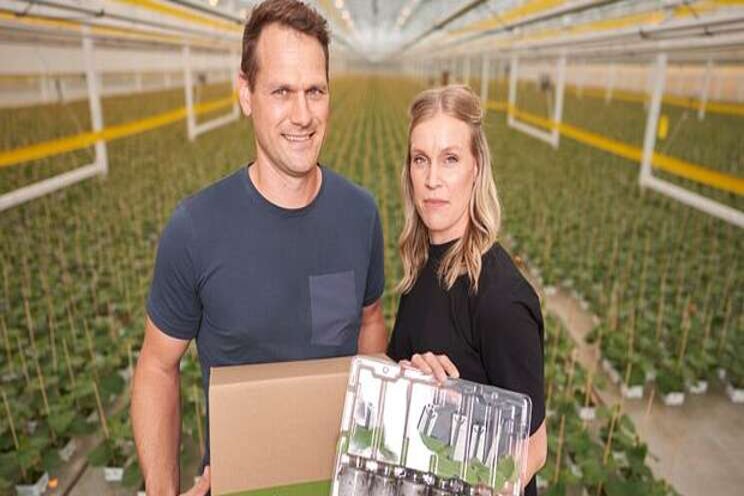
With plenty of agricultural and technological moxie in tow, Jodi and Adrian Roelands are shifting the greenhouse farming industry while sowing their own success story.
The proprietors of Roelands Plant Farms in Lambton Shores, Ont., northwest of London, have exponentially grown their business by 500 per cent since launching in 2013 and their team, which started with 40 employees, now tops 190.
"Our business grew faster than we anticipated; we reached our 10-year vision within the first three years," Ms. Roelands says. Roelands was also one of Canada's Top Growing Companies, a list compiled by Report on Business, and was 314th on the list in 2020.
The couple says their employees are a major driver behind their evolution. "Speaking to agriculture, from what we've seen, owners feel that they have to do everything; they feel compelled to do every task themselves. We try to work on our business and not in our business," Ms. Roelands says.
This guiding ethos has led to holistic decisions such as investing in human resources early on to acquire and manage the talent they needed to evolve. "If you're micromanaging every move, it's stressful. We try to hire the right people and give them the trust, autonomy and freedom to go forward," Ms. Roelands says. "You need the infrastructure to assist you so you're not doing it on your own."
That infrastructure supports the bread and butter of their business: Premium and organic starter plants which are sold to growers in Canada and the U.S.
The 38-year-olds say the U.S. has always been a part of their big picture. Currently, exports include tomato plants (for greenhouse production) and watermelon (for field production) and those sales make up 10 per cent of their business. They're hoping to boost that to 25 per cent.
To get the job done, they lean on extra hands to quicken the pace. "We do the exporting ourselves but Wilson International, a brokerage firm, clears the shipments for us," Ms. Roelands says. With their own trucks, they deliver plants to customers across the border, and thankfully, COVID-19 hasn't negatively affected their U.S. business.

It's the Roelands' dedication to modern farming that has catapulted their success.
GEOFF ROBINS/THE GLOBE AND MAIL
In the midst of the pandemic, the couple has witnessed huge growth at their side hustle, plantables.com, an online shop they launched four years ago that caters to DIY gardeners. With its minimal sales, Ms. Roelands was mentally prepared to shutter the endeavour; however, the direct-to-consumer boom resulting from the pandemic saw the site's business grow by 2,000 per cent during spring 2020.
Unfortunately, shipments are limited to Ontario and Quebec this year. "We gained a small but growing foothold in the U.S., but COVID put a full stop to exports [for plantables.com]," Ms. Roelands says. "Courier services and their shipping facilities were struggling with high volumes and COVID outbreaks, so shipping times became so long, that it was prohibitive to send our plants to customers that way."
Despite today's hurdles, Canada's vegetable greenhouse industry is positioned to make gains. In a 2019 statistical overview, Canada reported that acreages increased 21 per cent year-over-year and 48 per cent over the last decade. Greenhouse vegetable exports exceeded the $1-billion milestone (as it did in 2018) and total sales of greenhouse fruit and vegetables rose 5 per cent to almost $1.6-billion.
While the industry's growth is on their side, it's the Roelands' dedication to modern farming that has catapulted their success.
Both were born and raised on farms in Southwestern Ontario. "After working with Jodi's parents at their greenhouse vegetable operation for six years, we wanted to open our own operation," Mr. Roelands says. "At that time, we saw a real need [for growers] to start plants…and a need for us to make a real difference as an integral part of the food supply chain."
Their pride in growing premium plants, along with their commitment to farming innovation and food safety, shapes their business. For example, they've invested in computer-monitored greenhouse lighting, heating and irrigation to start plants highly coveted by growers.
They also opt for biomedical pest management. "We only grow vegetables which is seasonal with peaks in spring and summer. A lot of our competitors also grow flower crops, and that causes a biosecurity risk for vegetable seedlings." Flowering plants can negatively affect the health of a vegetable crop with its unfriendly pests.
By maintaining a clean and controlled environment, Roelands can propagate in-demand plants that are sold at a premium. Today they own and operate 21 acres, which began with only four acres when they purchased the farm almost 10 years ago.
"The biggest [challenge] right now is getting everyone vaccinated and eventually adjusting back to business as usual," Ms. Roelands says.
Until then, shifts and breaks are scheduled so communal spaces remain uncrowded. The business also integrated the costs of hotel quarantines for visiting workers from Mexico and Guatemala. Mr. Roelands admits the farm has lost some efficiencies, however, "we can't complain considering how hard-hit other businesses are."
What hasn't changed is the Roelands' greater purpose which inspires them: "We have a sense of pride in being part of the food chain. And we want to [share] that experience with agriculture, which is really special to us."
Header Photo: Jodi and Adrian Roelands, owners of Roelands Plant Farms in Lambton Shores, Ont. (near Forest) in their Greenhouse on May 5, 2021.
Source: The Globe and Mail
Source: The Globe and Mail
More news
